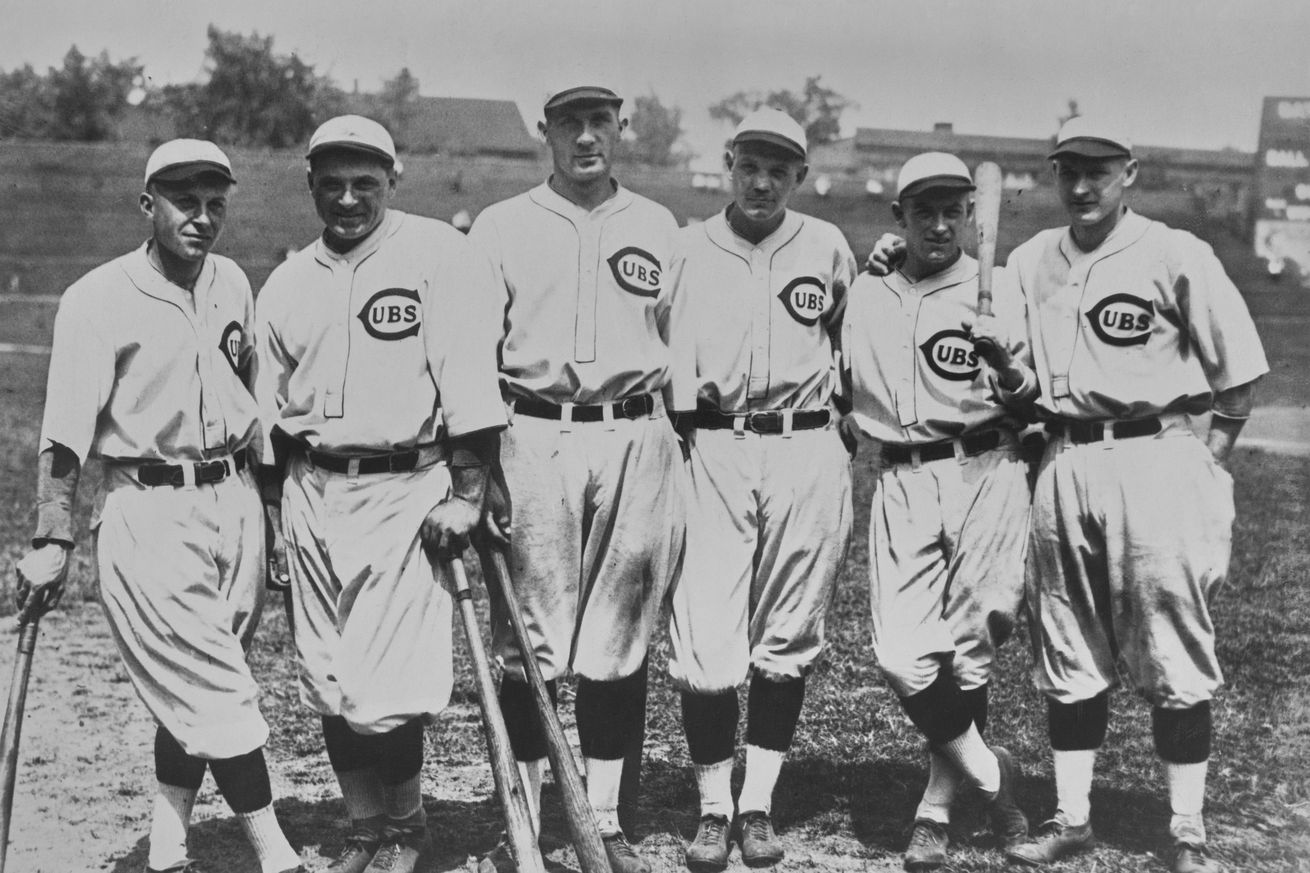
This was not a very good year for the North Siders.
The 1921 Cubs won their first three games and six of their first eight, then promptly went into a dive that had them finishing seventh, 30 games behind the pennant-winning Giants. Only a rained-out game against Brooklyn that was not made up possibly prevented the 64-89 Cubs from their first-ever 90-loss season, something that wouldn’t happen until 1948,
They wouldn’t finish 30 games out of first place again for 20 years, not until 1941. The lousy play got franchise icon Johnny Evers fired as manager mid-season.
Here are a few key transactions from 1921.
May 11: Acquired John Sullivan from the Braves for cash considerations
Sullivan, an outfielder, had played a decade in the minor leagues before debuting in MLB with the Braves in 1920. For the Cubs he batted .329/.381/.471 in 76 games. That, apparently, was not enough to keep him and Sullivan played another four years, all in the minors, and was involved in a trade you’ll read about below.
June 10: Acquired Kettle Wirts from Dallas (Texas League) for cash considerations
Wirts played in just 43 games for the Cubs from 1921-23 and batted .176/.307/.243. I’m mainly including him here because “Kettle Wirts” is a great baseball name. His actual given name was “Elwood,” and “Kettle” is much better from a baseball standpoint. He grew up in Sacramento and went back there after baseball to run a beer distributing company, as well as running a baseball school. He died in 1968 and there’s no record of why he was nicknamed “Kettle.”
July 1: Acquired Elmer Ponder from the Pirates for Dave Robertson
Robertson, no relation to the reliever who pitched briefly for the Cubs in 2022, was near th end of a nine-year MLB career when the Cubs shipped him off. His biggest claim to fame was batting .500 (11-for-22) in the 1917 World Series for the Giants.
Ponder, a righthanded pitcher, posted a 4.74 ERA in 16 games (11 starts) for the Cubs and then he was involved in a major trade (see below).
July 4: Acquired Tony Kaufmann from Winnipeg (Western Canada League) for casah considerations
Kaufmann, a Chicago native, was a stalwart in the Cubs rotation for the next six-plus years, his best season happened in 1925, when he went 9-7 with a 3.02 ERA and posted 2.7 bWAR. Arm troubles shortened his career; he managed for several seasons in the Cardinals organization after playing and was a major-league coach for St. Louis from 1947-50, then a scout. He passed away in Chicago in 1981.
December 19: Acquired Arnold Statz and Vic Aldridge from Los Angeles (Pacific Coast League) for Elmer Ponder, John Sullivan, Babe Twombly, Tom Daly and Charlie Deal
This deal had a number of PTBNL who were exchanged between the clubs between January and February 1922; I list the deal like this because, well, it’s too complicated to go through all the PTBNL machinations.
Statz, who largely played center field in his time in Chicago, had played briefly in the majors for the Giants and Red Sox before the Cubs acquired him, and he quickly had two very good years for the Cubs, particularly in 1924, when he batted .319/.375/.440 with 33 doubles and 29 stolen bases. His numbers declined the next two years and he was sent back to Los Angeles. Hitting well there, he was acquired by Brooklyn, but didn’t hit much there. That led to 14 seasons playing as part of the Cubs organization, but in Los Angeles, where he’d routinely hit .330 or better, and had 43 stolen bases at age 38 in 1936. Why he never got another chance with the Cubs is lost to the mists of time.
In his later years Statz scouted for the Cubs and is credited with signing Lou Stringer and Lou Novikoff for the team, among others.
You might have heard this player called by the nickname “Jigger,” and per his SABR biography, here’s how he got that nickname:
… the Statz family had apparently lived very briefly in Alabama and young Arnold picked up the nickname Chigger, which became transformed the way nicknames sometimes do to become Jigger.
Statz died in 1988, aged 91.
Oh, yes, Aldridge. He pitched reasonably well for the Cubs for parts of five seasons (9.8 bWAR) and then was included in the deal that brought Charlie Grimm to the Cubs in 1924.
These deals provided some value to the Cubs and didn’t subtract much, so they get a B.
